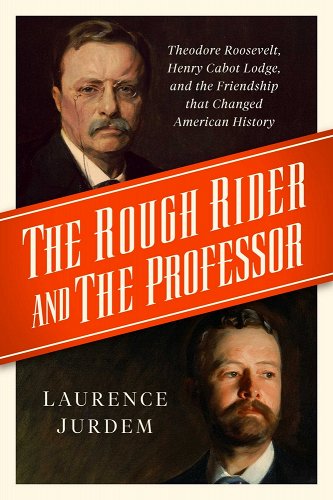In 1884 Roosevelt and Lodge faced political ostracism following their failed effort to topple the nomination of GOP presidential candidate James G. Blaine. Out of that experience, the two forged a friendship of more than thirty years that in time proved responsible for changing the course of the history of the United States. That relationship not only accelerated the rise of Theodore Roosevelt but played a significant part in the nation gaining a prominent position in world affairs.
Proponents of American exceptionalism, Roosevelt and Lodge believed the ideas encapsulated in the Declaration of Independence of 1776 and the Constitution of 1787 represented something entirely unique in human history. The two politicians contended the country could only achieve its destiny by achieving its rightful place on the international stage. In 1898, Lodge and Roosevelt waged a strategic campaign to acquire key territories in the Pacific theater. Both men believed these expansionist objectives not only enhanced the country’s national interests but provided a means of invigorating the nation’s character during a period of drift and division.
On more than one occasion, the friendship between the two came under strain. Following Roosevelt’s succession to the presidency in 1901, Lodge, always the more successful of the two, suddenly saw his protégé at the top of the political pyramid. Despite the sudden shift in their relationship, Lodge’s admiration for Roosevelt never wavered. But during Roosevelt’s tenure in the White House, his desire to ideologically expand the Republican Party caused the president to embrace a series of progressive reforms contrary to his mentor’s conservative point of view.
In 1912, the tensions between the two exploded for all to see. With the objective of securing a third presidential term, Roosevelt bolted from the Republican Party in favor of a populist agenda. That path, one that Lodge had warned Roosevelt never to choose, created serious differences between the two men. The senator believed Roosevelt’s support of positions like the recall of judges and the direct election of senators not only endangered the fortunes of the Republican Party but threatened the foundations of the nation’s democratic system.
Following the defeat of Roosevelt’s independent drive for the presidency, the two men reunited over their mutual disdain for the personality and policies of Woodrow Wilson. Both believed Wilson’s foolish idealism and weak character placed the greatness of the United States in jeopardy. The relationship between Lodge and Roosevelt endured many twists and turns, including the tragic deaths of friends and family. Despite these traumatic moments, the personal conviviality between Roosevelt and Lodge continued until the former president took his final breath in January 1919.
